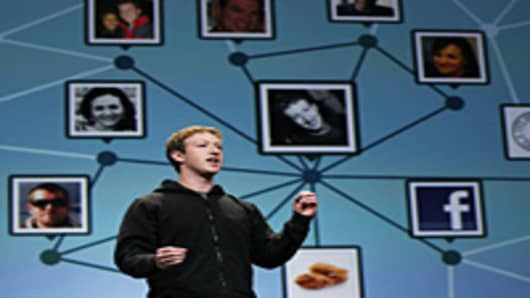Long before Facebook became a verb and its IPOsparked a scramble for its shares, it was just another site that college campuses tend to incubate.
Many wondered if it would be merely a fad. Even its founder, Mark Zuckerberg, questioned why it was growing so quickly.
A collection of articles from“The Harvard Crimson” provides a glimpse into the site’s 2004 inception in Zuckerberg’s dorm room—before it became a social networking giant with a projected value of up to $95 billion.
In one piece, Zuckerberg said he almost gave up on creating the site, which he built in roughly a week as an alternative to a university-run social site that he thought would take too long to develop.
“If I hadn’t launched it that day, I was about to just can it and go on to the next thing I was about to do,” he said about the site, first began as thefacebook.com.
After the site launched, it enjoyed wildfire-like success. But not everyone was convinced that the site’s popularity was sustainable.
“I’m a bit curious to see if Mark’s website is a short-term phenomenon,” said Aaron Charbourne, a Harvard student. “Last year, there was a thing called buddyzoo.com where you could post your buddy list online and create a network, but after a while people definitely lost interest in it.”
Still, students from Harvard, and later other colleges, flocked to the site — a response that surprised even Zuckerberg.
“I have no idea why it’s so popular,” he told the paper. “I was pretty surprised.”
As Facebook expanded among other members of the Ivy League, Zuckerberg mentioned the possibility of generating revenue from the site for the first time in the articles. At the time, he said he was paying about $85 per month out of pocket for the server space.
“It might be nice in the future to get some ads going to offset the cost of the servers,” he said.
Facebook was not the first Zuckerberg creation that drew investors’ attention. In high school, he and a fellow classmate created a MP3 player program to design playlists for users based upon their musical tastes. Although they received an offer of about $2 million to sell, they declined.
“I don’t really like putting a price-tag on the stuff I do,” he told the paper. “That’s just like not the point.”
But later when they were ready to sell, the offers had dried up. Although Zuckerberg did not have any plans to sell Facebook either at the time, he was not entirely opposed to it to it.
“Maybe when I’m bored with it, then we’ll work something out,” he said in June 2004. “But I don’t see that happening anytime in the near future.”
He added, “And ‘near future’ being like anytime in the next seven or eight days.”
Even around eight months later in February 2005, Zuckerberg, who had taken two semesters off at that point and moved to California to focus on the project, was still open to selling the company.
“We like school and want to go back to school and at some point somebody’s gonna offer us a lot of money and we’ll probably take it, you know?” he said.
Looking Back as IPO Nears
After initially hearing about Facebook in “The Crimson,” Stephen Dawson-Haggerty said he registered as the site’s 1239th user. Although he said he found the site useful, he was not convinced at first that it had staying power.
“I don’t know — I think I thought it was a campus fad,” he told CNBC. “It was a lot more campus focused at the time so it really was kind of useful. You could find people in your classes and on campus.”
Months later, Dawson-Haggerty would become one of two Facebook interns during the start-up’s first summer in California.
“They actually posted an ad on Facebook and said they were looking for interns, and so I responded to that because everyone else already had finance internships, and I needed something to do that summer,” he said.
During the summer, he developed new features for the site and helped to add to the site’s rapidly expanding list of colleges.
His work that summer netted him some cash and some stock in the fledgling company — perhaps a fair more lucrative payment form in hindsight considering the company’s plans to price its IPO between $28 and $35 a share. Dawson-Haggerty declined to say how many shares he owned.
Like Dawson-Haggerty, Alan Tabak, who penned the Crimson’s initial Facebook article and followed the company’s trajectory in subsequent pieces, did not see an immediate potential for success in the start-up.
“My first thought was certainly not that it was going to become a billion-dollar company,” Tabak told CNBC.
In fact, Tabak had never even heard of the site before picking from a list of potential topics that one of the paper’s editors had chosen.
With an active user base of 901 million members and offices from Menlo Park, Calif., to Milan, Facebook has gained the name recognition that it lacked in those beginning Harvard days.
Moving forward, investors, who choose to buy into the company’s IPO, will likely hope that another early Zuckerberg goal also comes to fruition.
“I assume eventually I’ll make something that is profitable,” he told the paper.




